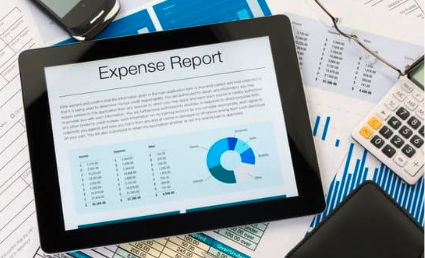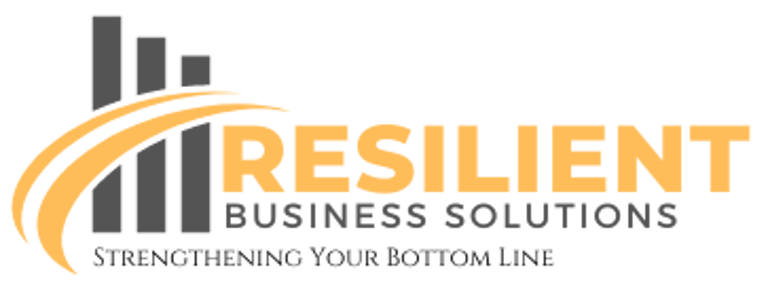Simplifying Expense Reports for Small Businesses: Best Practices
Learn how accurate expense reporting plays a vital role in improving cash flow, budgeting, and overall financial health for small businesses, ensuring smarter financial management.
5 min read


Expense reporting is a critical component of financial management for small businesses. By systematically documenting business expenses, owners can maintain a clear understanding of their financial activities, allowing for better budgeting, cash flow management, and decision-making. Proper expense reporting not only helps businesses stay organized but also ensures they can identify spending patterns and make informed adjustments to their financial strategies.
Understanding the Importance of Expense Reporting
Expense reporting plays a pivotal role in the overall financial health of small businesses. By systematically documenting expenses, organizations can maintain a clear overview of their financial activities, which is essential for strategic planning and decision-making. Effective expense reporting not only facilitates budgeting but also aids in comprehensive financial analysis. Small business owners are often required to allocate resources judiciously, and having accurate and timely expense reports helps them identify spending patterns and adjust their budgets accordingly.
Moreover, expense reporting is crucial for managing cash flow. Cash flow is the lifeblood of any small business, and understanding the timing of expenses versus income can mean the difference between ensuring operational stability and facing financial constraints. When a business has a clear understanding of its expenses, it can better project future financial scenarios, enabling more informed investment and operational decisions. Failure to implement effective expense reporting practices can lead to unexpected cash flow shortages, negatively impacting day-to-day operations and long-term growth prospects.
However, small businesses often face several challenges when managing expenses. One common issue is the lack of a standardized process for expense reporting, which can lead to inconsistencies and inaccuracies. Employees may submit receipts in various formats or may forget to report certain expenses altogether. Additionally, the manual tracking of expenses can be time-consuming and prone to human error, further complicating the financial picture for small business owners.
The impact of inefficient expense reporting extends beyond just inaccuracies. It can hinder the ability to perform financial analysis accurately and may discourage employees from adhering to necessary reporting protocols. As a result, organizations miss out on valuable insights that can be derived from detailed expense data. In conclusion, by streamlining and simplifying expense reporting, small businesses can significantly enhance their financial management processes, paving the way for more effective budgeting and cash flow maintenance.
Implementing User-Friendly Tools and Software
In today's fast-paced business environment, small businesses often face the challenge of managing expense reports efficiently. One effective way to streamline this process is by implementing user-friendly tools and software designed specifically for expense tracking and reporting. By selecting the right platforms, businesses can drastically reduce the burden associated with manual entry and increase overall productivity.
When evaluating software options, it is crucial to choose tools that offer mobile access. This feature allows employees to submit expenses as they incur them, which minimizes delays and the potential for lost receipts. Many modern expense reporting solutions come with receipt scanning capabilities, enabling users to take a picture of their receipts, automatically extracting the relevant data. This seamless approach not only enhances convenience but also increases the likelihood of accurate expense reporting.
Another significant advantage of utilizing modern expense reporting tools is the inclusion of automatic categorization features. These capabilities streamline the sorting of expenses into predefined categories, providing a clear overview of spending trends. By simplifying categorization, businesses can gain valuable insights into their expenditures, allowing for more informed financial decision-making.
Moreover, it is essential to consider how these tools integrate with existing accounting systems. Compatibility between expense reporting software and accounting platforms enhances the accuracy of financial records by eliminating the need for manual data entry. This integration can help to avoid discrepancies and reduce the time required for month-end closing processes.
In sum, selecting user-friendly tools and software equipped with mobile access, receipt scanning, and automatic categorization features can significantly simplify the expense reporting process for small businesses. By ensuring these tools integrate effectively with accounting systems, businesses can enhance both accuracy and efficiency in their financial management practices.
Establishing Clear Policies and Procedures
For small businesses, establishing clear policies and procedures regarding expense reporting is crucial for ensuring efficient financial management. A well-defined expense policy serves as a guideline for employees, indicating the types of expenditures that qualify for reimbursement. These guidelines should include detailed categorizations of acceptable expenses, such as travel, meals, office supplies, and other relevant costs. By clearly articulating these criteria, businesses can avoid confusion and misunderstandings that often lead to disputes over reimbursements.
Moreover, it is essential to specify the required documentation for each type of expense. Employees should be instructed to provide receipts, invoices, or any other necessary proof of purchase when submitting their expense reports. This requirement not only streamlines the reimbursement process but also helps maintain compliance with taxation regulations, reducing the risk of audits by ensuring that every expense is properly justified. Utilizing standardized forms for submissions can further enhance this process, making it easier for employees to comply with the established protocols.
In addition to outlining acceptable expenses and documentation, businesses should also define clear timelines for reporting these expenses. Establishing deadlines for submitting expense reports encourages timely processing and ensures that all financial records remain current. For example, setting a policy that requires reports to be submitted within a specific time frame after the expense has occurred can significantly enhance the clarity and organization of financial tracking.
Finally, it is important to invest in training programs for staff to educate them about these policies and procedures. Training sessions can reinforce the importance of adhering to expense-reporting protocols and highlight the potential consequences of non-compliance. By educating employees on these guidelines, small businesses can foster a culture that values adherence to established financial practices, ultimately leading to more efficient expense management.
Reviewing and Automating the Approval Process
Streamlining the approval process for expense reports is essential for small businesses aiming to enhance efficiency and reduce administrative burdens. One effective strategy is to establish clear approval hierarchies that delineate the roles and responsibilities of individuals involved in this process. By defining who approves what thresholds, businesses can eliminate confusion, prevent delays, and maintain accuracy during the approval stage. This clarity not only aids in quick decision-making but also promotes accountability among team members.
In addition to setting clear hierarchies, small businesses can greatly benefit from automating the expense report approval process. Automation tools can expedite the review of submissions, quickly routing reports to the appropriate approvers based on customizable workflows. This reduces the need for manual intervention, decreases the likelihood of human error, and speeds up the overall approval timeline. Some automation solutions offer notification systems that alert approvers when there are pending requests, ensuring that no report is overlooked.
Regular reviews and audits of the expense report process are equally important. By conducting reviews, businesses can identify trends in spending patterns, allowing them to make informed decisions about budgeting and resource allocation. Additionally, audits serve as a safeguard against fraud, enabling organizations to spot inconsistencies or anomalies in expense claims. As a small business grows, maintaining an efficient approval process is crucial to scaling operations without sacrificing accuracy or compliance.
As You Can See
Ultimately, streamlining and automating the approval process for expense reports can lead to significant time savings, reduced errors, and an overall increase in productivity. By implementing clear approvals and leveraging automation, small businesses can ensure a smoother workflow that adapts to changing organizational needs.
When You Are Ready
Ready to simplify your business operations? At Resilient Business Solutions, we’re here to take the stress out of so many of your business tasks, so you can focus on what you do best — growing your business. Whether you need help with bookkeeping, invoicing, managing payables and receivables, content creation, or a new website design, we’ve got you covered. Contact us today to learn how we can support your business with reliable, expert services. Let’s build a resilient future together!
Strengthening Your Bottom Line
Customized financial support to empower your business success.
Get Our Free 50+ Page Small Business Success Guide Now
© 2024. All rights reserved.
